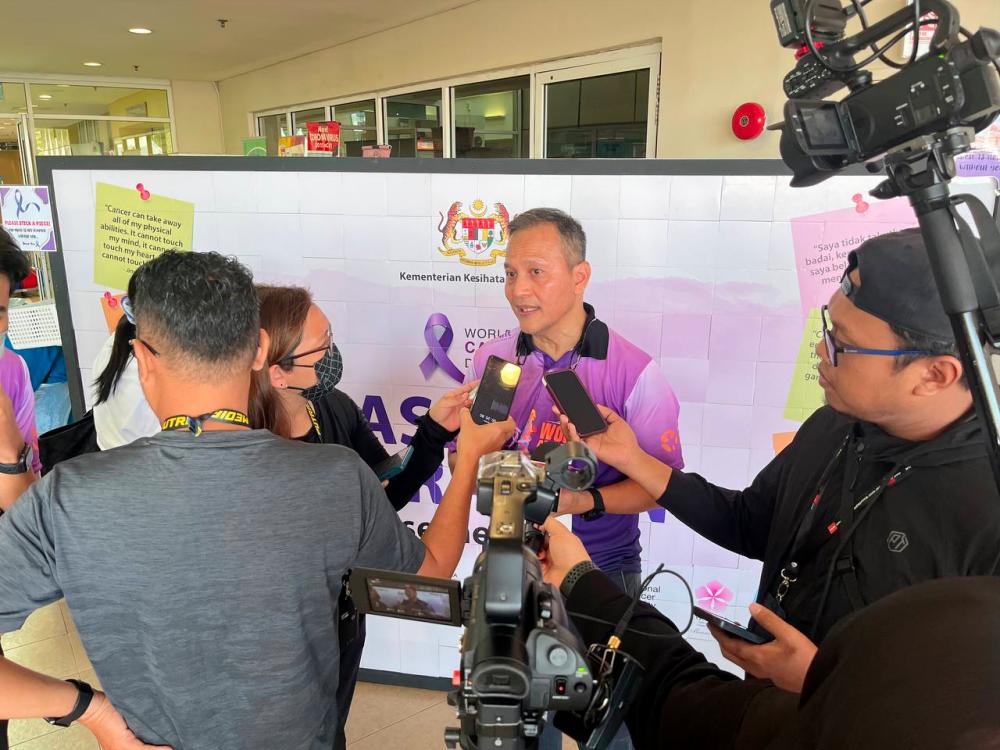PUTRAJAYA: The National Cancer Institute (IKN) is hoping for an increase in allocation specifically for cancer medications because there are constraints in providing them to every patient due to their high cost.
Its director Dr Mohd Anis Haron@Harun (pix) said IKN received about RM80 million for the first six months of this year, which was used for medications, emoluments, surgeries and other expenses but the amount was insufficient because the price of medicines for cancer treatment is expensive.
“Cancer drugs are notoriously expensive, except for generic drugs which have become cheaper but the latest drugs are still pricey. We can’t afford to give it for free so IKN hopes to get a bigger budget (allocation),” he said.
He said this to the media after the World Cancer Day Fun Run 2023 programme which was officiated by Health Minister Dr Zaliha Mustafa, here today.
Dr Mohd Anis said a bigger allocation for medicines is required since some medications, such as ‘targeted therapy’ are the first-line treatment for cancer in addition to chemotherapy
According to him, IKN still imposed a quota on selected patients and the decision regarding the drug’s suitability is made by medical experts.
The procedure also requires approval and thorough documentation that the patient is qualified to receive the treatment, he added.
Meanwhile, Dr Mohd Anis said there has been an increase in community awareness of cancer as a result of active promotion on social media with IKN accepting 51,000 outpatients and 9,500 inpatients last year.
He said the IKN will focus on late-stage cancer patients whose numbers have increased by around 40 per cent.
Dr Mohd Anis added that the prevalence of lung cancer among patients aged 40 and above has increased over time, whereas colorectal cancer is the most common type of cancer in men while breast cancer is the most commonly diagnosed cancer among women.
Meanwhile, Dr Zaliha in her speech, said it is anticipated that the burden of cancer will keep rising due to the high prevalence of risk factors for non-communicable diseases in Malaysia and the country’s ageing population.
Nevertheless, she said that according to the World Health Organisation, a healthy diet, regular exercise, smoking cessation and avoiding excessive alcohol consumption can prevent between 30 and 50 per cent of cancer cases. - Bernama









